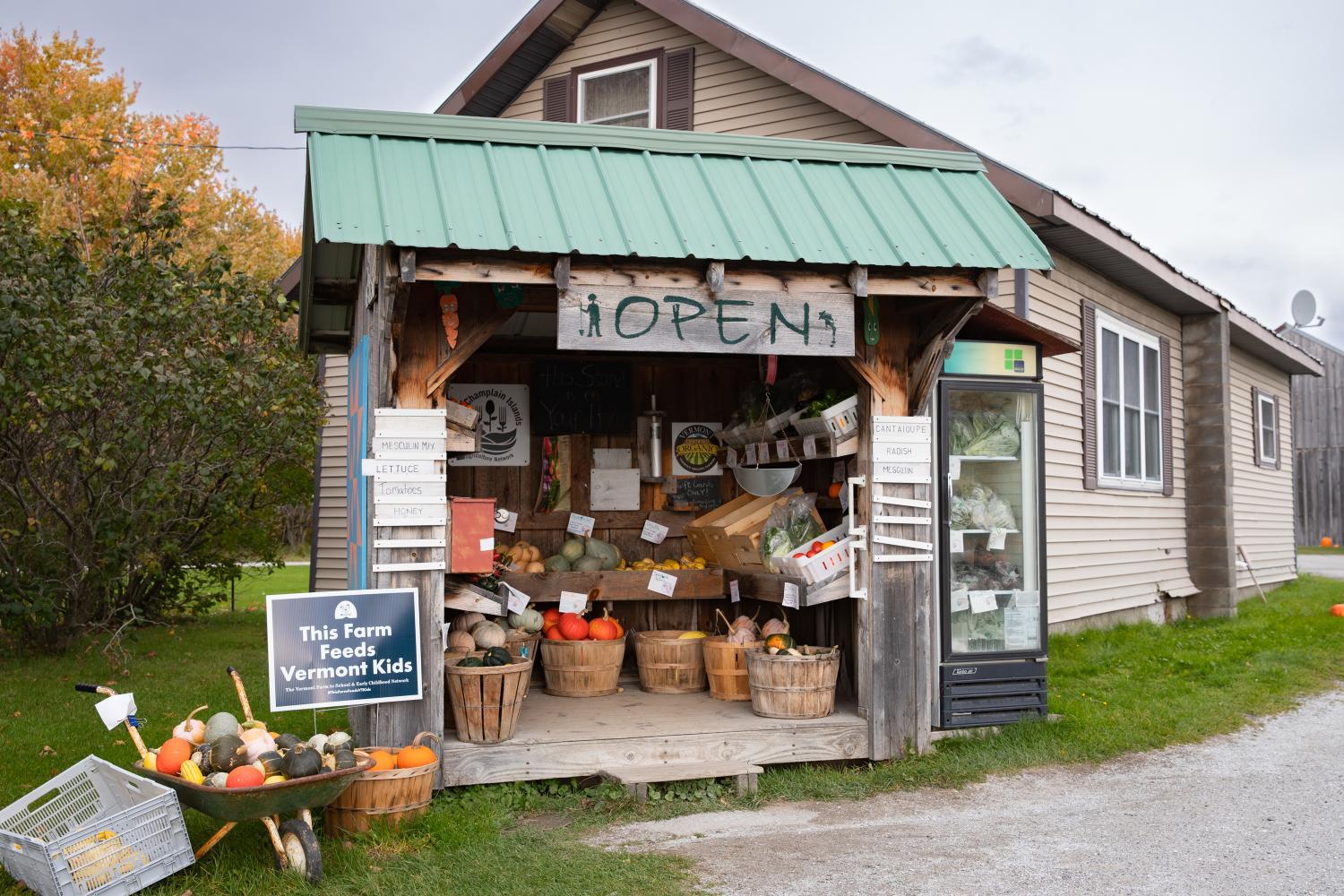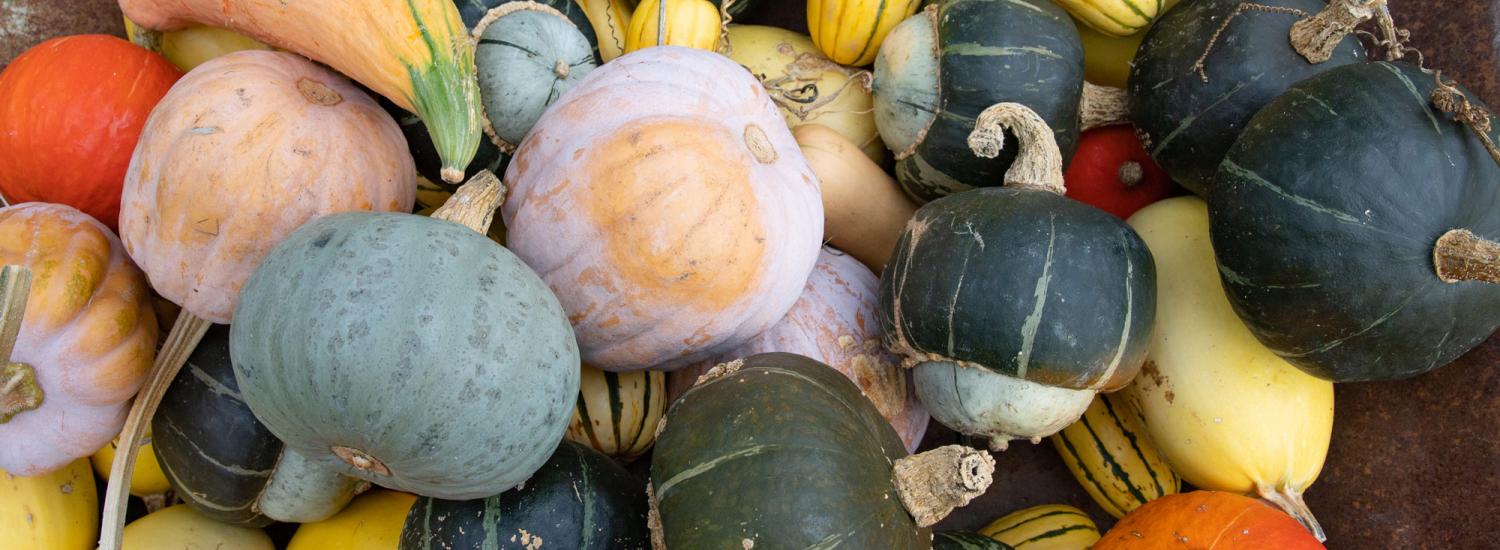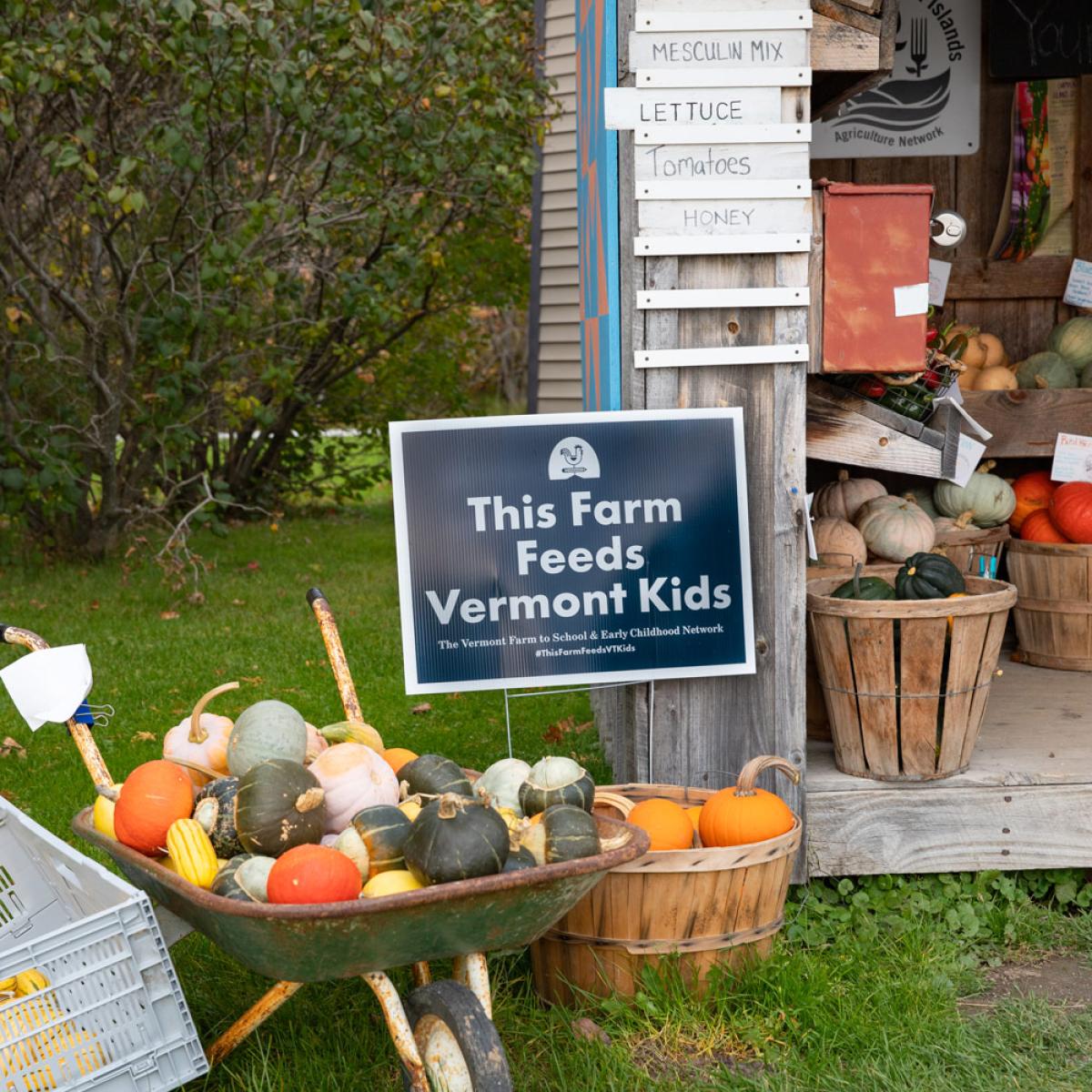“I just ask that they try everything. If you don’t like it, you don’t have to keep eating it, but you have to try it. I remind them that what matters is that you try it.”
Alburgh Community Education Center Food Services Manager Charity Nephew’s passion for feeding kids and getting them excited about nutritious food is undeniable. And her efforts to build appreciation for good food extends beyond the kitchen; Charity’s family has farming roots in Alburgh, and she knows the important role agriculture plays in her community. “We encourage kids to try new things, and we remind them that people worked really hard to get that food to us.”
But getting high quality produce at a price to work for a school meal program isn’t always easy. The processes and systems for feeding students are notoriously complicated, and tight budgets can create barriers for including more nutritious, local foods. Luckily, Charity knows the farmer right down the road—her sister, Heather Darby.

Darby Farm, a seventh-generation organic farm sits less than a mile down the road from Alburgh Community Education Center. “There are three of us here in the kitchen,” Charity explains, “and finding time to build relationships with local producers can be hard. But my sister is right there, and it just makes sense.”
“We started purchasing from Heather last October, when I started in the kitchen,” Charity remembers. “We started with potatoes.” The kitchen was purchasing fifty-pound bags of potatoes from their distributor and were becoming frustrated with the quality. Half the bag would be rotten, and it took hours of precious staff time to peel the baking variety. So, Charity tried something new, and purchased small new potatoes from Darby Farm when she was in a pinch one day. They were delicious, didn’t need to be peeled, and not a single potato needed to be composted straight out of the bag.

“Last year the food prices were a lot lower, and we just couldn't match what the school was buying from their distributor,” Heather shares. “But Charity calculated how much money she lost in labor and product with those cheaper potatoes, and she realized it was actually cheaper to buy locally from my farm. This year, the distributor's prices are actually higher than what I sell them for.” Better taste, less waste, and at a lower cost.
Why is it important to serve local food in schools? “You want to know what's in your food,” replies Charity. “As manager, I need to think about how I can get the most bang for my buck. Oftentimes the local food is cheaper around here, it lasts so much longer, and the quality is so much better. And the kids notice the difference— it tastes better.”
Read more stories from the This Farm Feeds Vermont Kids Project: Milton Family Community Center and Laura Butler and Blue Heron Farm.
Learn more about Heather's farm and practices in Patagonia's video and in UVM's Vermont Quarterly Spring 2020 magazine.

